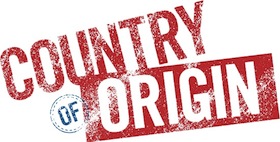New Kogod Index tries to quantify 'domestic' cars by looking where R&D investments and automaker profits go.
 In today’s global market, auto companies are often headquartered in one country, while cars and trucks are built around the world with parts acquired from anywhere and everywhere.
In today’s global market, auto companies are often headquartered in one country, while cars and trucks are built around the world with parts acquired from anywhere and everywhere.
Consumers who want to know which vehicles are "Made in America" rely on information that automakers are required to report under the American Automotive Labeling Act (AALA) and on lists such as Cars.com’s annual American-Made Index. Now a new study is available that presents a different perspective on what constitutes an American car – one that gives buyers even more factors to consider.
The Kogod Made in American Auto Index is the brainchild of Frank DuBois, an associate professor at American University’s Kogod School of Business. A longtime car buff, DuBois started watching the effects of globalization on the auto industry while working as a Volkswagen mechanic in the 1970s after noting the difficulties of mounting Brazilian-made mufflers as opposed to German ones. DuBois says that the AALA data are too easy to manipulate – simply, that it’s too easy for manufacturers to advertise a vehicle’s "American-ness" while keeping consumers in the dark about details that might sway their purchasing decisions.
To that extent, the Kogod Index considers both where an automaker's headquarters and research-and-development facilities are located. DuBois put an emphasis on where an automaker’s money goes that isn’t seen in other studies. For example, while BMW’s South Carolina plant is one of the biggest in the United States, the majority of the parts used to build cars there come from overseas, and around 70 percent of the BMWs built there go right back overseas to be sold.
In contrast, General Motors is at the top of the Kogod manufacturer rankings for most American cars, because it invests more with its R&D facilities in the U.S., rather than looking only at the location of production facilities and the amount of domestic parts used. DuBois argues that with the AALA making no distinction between American and Canadian parts, and since the law only requires identifying countries whose parts make up 15 percent or more of a vehicle, new metrics are necessary for point-of-origin-conscious consumers to make informed decisions.
What are the implications of the Kogod Index? For one, the Toyota Camry doesn’t sit atop the list or even among the top three vehicles. The Kentucky-built Camry was the Cars.com Index’s No. 1 car in 2012 and sits at second place for 2013, but from the Kogod Index’s focus on headquarters location and stricter accounting of domestic versus foreign parts, the Camry places 12th on the new study in a six-way tie.
On the Kogod Index, three cars have for the No. 1 spot: the GMC Acadia, Buick Enclave and Chevrolet Traverse. As with all data-driven studies, controversy is bound to follow. DuBois fully expects enthusiasts and the auto industry alike to find fault with his results and the methods through which they were reached. His response to this is simple: “Show me something better.”
autos.msn.com
No comments:
Post a Comment